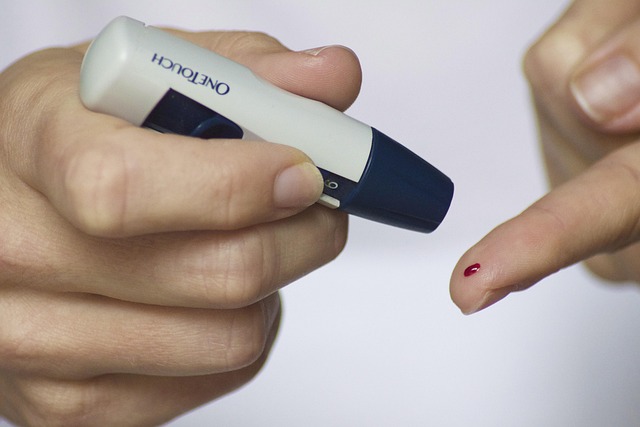Liver Function Tests (LFTs) are crucial for assessing liver health and diagnosing conditions like hepatitis, cirrhosis, and metabolic disorders like diabetes. In the UK, diabetes patients regularly undergo LFTs to prevent and manage hepatic complications such as fatty liver disease and diabetic hepatitis. Standard LFTs include key measurements of glucose levels and HbA1c, interpreted by healthcare professionals to diagnose and treat diabetes effectively. Elevated enzymes (ALT, AST, bilirubin) may indicate liver damage or conditions like NAFLD, requiring further evaluation and specialized care.
“Unraveling the complexities of liver health, this article offers medical professionals a comprehensive guide to standard liver function tests (LFTs). We explore the fundamentals of LFTs and their critical role in diagnosing and managing conditions like diabetes. With a focus on the UK context, we delve into the specific procedures for diabetes blood tests, ensuring accuracy and timely interpretation of results. Learn when to suspect underlying issues and when further evaluation is essential for patient care.”
- Understanding Liver Function Tests: Basics for Professionals
- Standard Test Procedures: Diabetes and Blood Analysis in UK
- Interpreting Results: When to Consider Further Evaluation
Understanding Liver Function Tests: Basics for Professionals
Liver function tests (LFTs) are a crucial component of routine blood investigations, providing valuable insights into the health and functionality of the liver. These tests assess various enzymes and proteins produced by the liver, helping medical professionals detect abnormalities that may indicate liver damage or disease. Understanding LFTs is essential for healthcare providers as they play a pivotal role in diagnosing and managing conditions like hepatitis, cirrhosis, and even diabetes, as elevated liver enzymes can be a marker for metabolic disorders.
In the UK, diabetes patients often undergo regular LFTs as part of their comprehensive medical care. This is because diabetes can lead to hepatic complications, such as fatty liver disease or more severe conditions like diabetic hepatitis. By incorporating LFTs into routine check-ups, healthcare professionals can promptly identify any changes in liver function, enabling early intervention and management strategies.
Standard Test Procedures: Diabetes and Blood Analysis in UK
In the UK, standard liver function tests (LFTs) often include measurements that can provide valuable insights into a patient’s overall health and specific conditions, including diabetes. Diabetes blood test UK protocols are designed to assess various markers in a patient’s blood sample. These tests typically involve checking for levels of glucose, glycated haemoglobin (HbA1c), and other related substances. Glucose is the primary indicator of blood sugar levels, while HbA1c reflects long-term average glucose control.
For patients with suspected or managed diabetes, these diabetes blood test UK procedures are crucial in diagnosing the condition, monitoring its progression, and evaluating the effectiveness of treatment. Medical professionals interpret the results in conjunction with clinical symptoms and other diagnostic tools to make informed decisions about patient care. Regular monitoring through standard LFTs plays a significant role in managing diabetes and preventing complications associated with elevated blood sugar levels.
Interpreting Results: When to Consider Further Evaluation
Interpreting the results of a standard liver function test (LFT) is crucial for medical professionals as it can indicate various conditions and diseases, including those associated with diabetes. In the UK, where Diabetes Blood Test services are readily available, understanding LFT outcomes is essential for effective patient management.
If certain enzymes like ALT, AST, or bilirubin levels are elevated, it may suggest liver damage, inflammation, or conditions such as hepatitis, cirrhosis, or even diabetes-related complications. For instance, non-alcoholic fatty liver disease (NAFLD) can lead to elevated ALT and AST. In the context of diabetes, regular monitoring is vital due to the increased risk of developing liver issues. If results deviate significantly from the reference range, further evaluation should be considered, including more specialised tests or referrals to hepatologists or endocrinologists for comprehensive care.
Liver function tests (LFTs) are essential tools for medical professionals, offering valuable insights into liver health. By understanding basic test procedures and interpreting results, especially in the context of diabetes and blood analysis within the UK healthcare system, healthcare providers can promptly identify abnormalities and initiate appropriate care. The standard LFT, while a routine practice, is a game-changer in navigating complex patient cases, particularly with reference to Diabetes Blood Test UK protocols.
